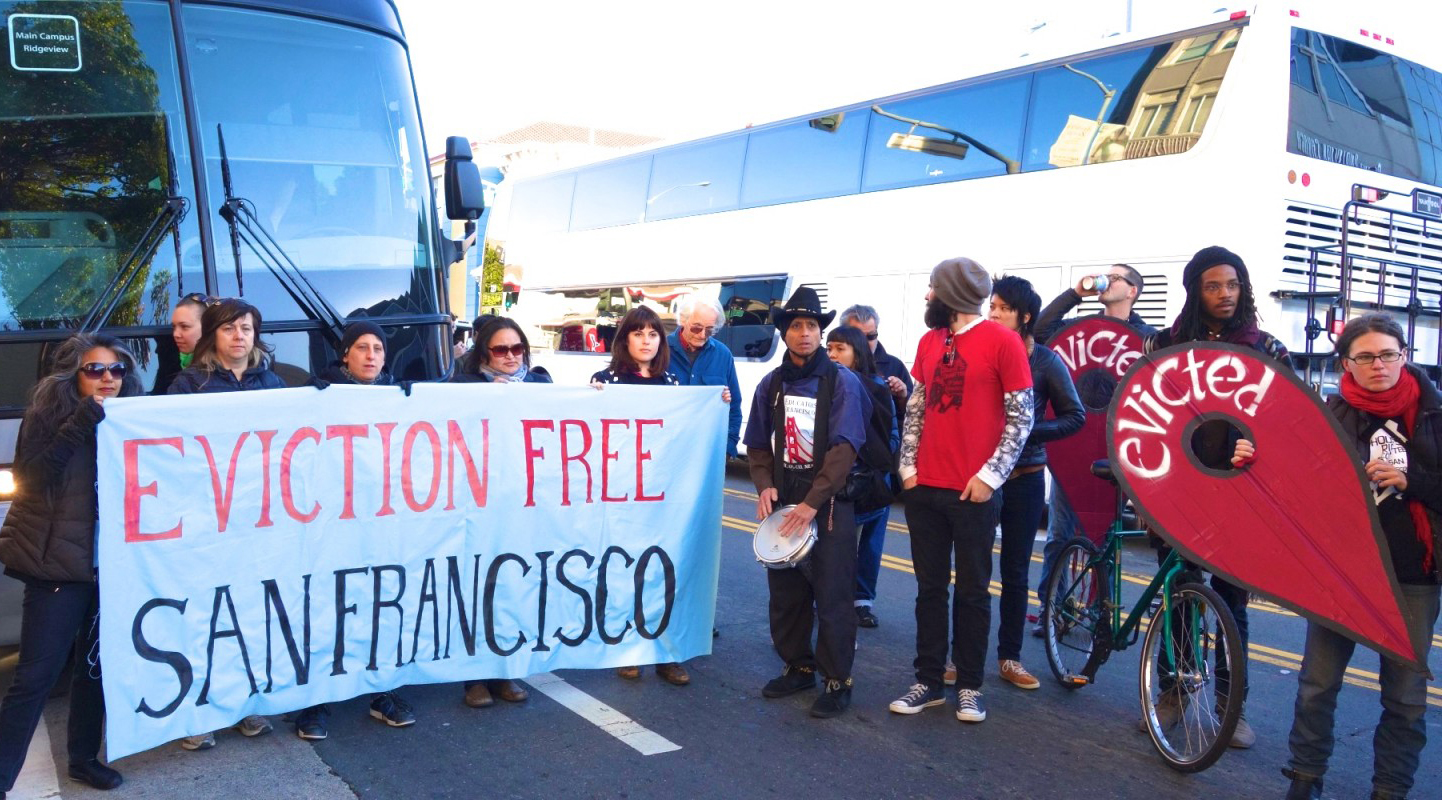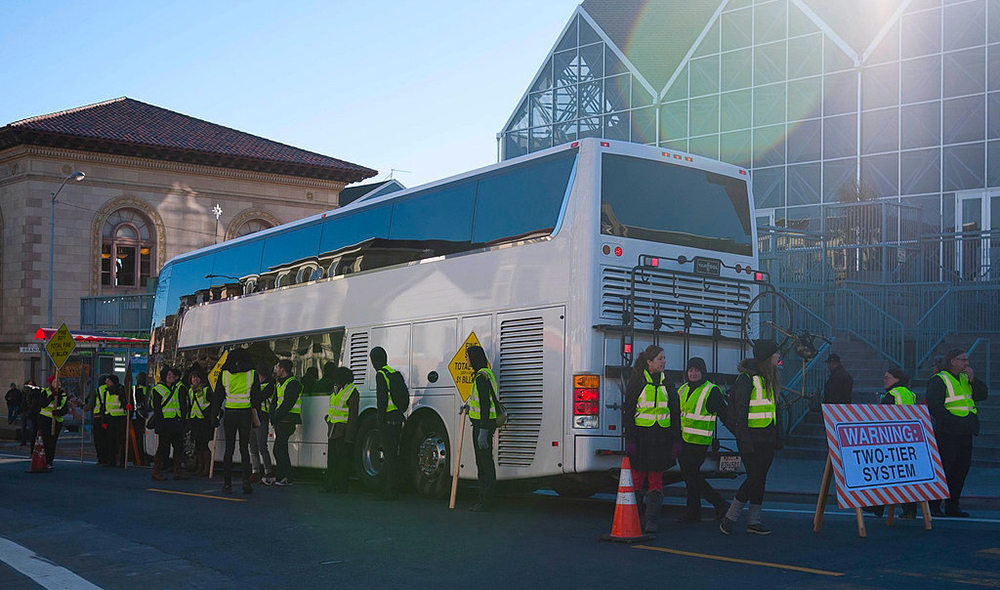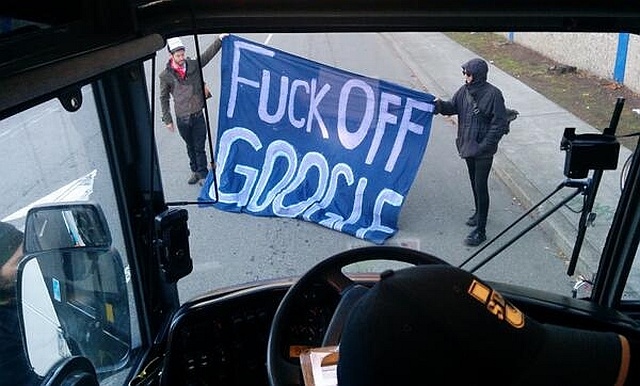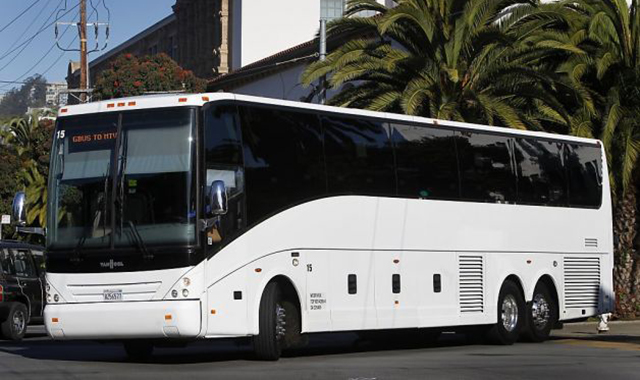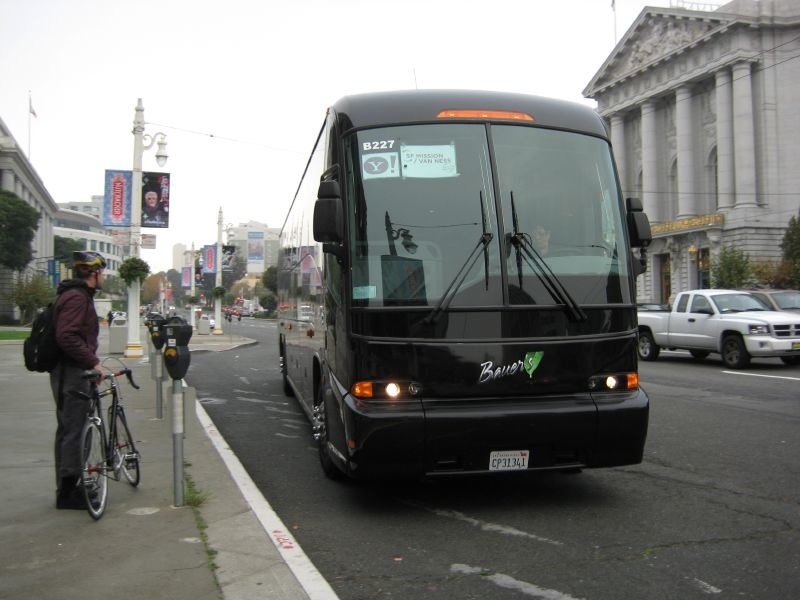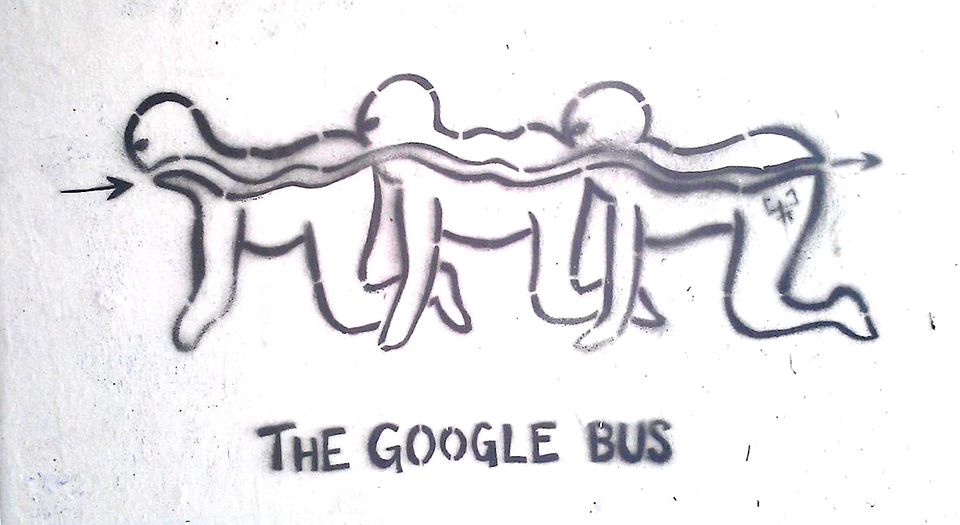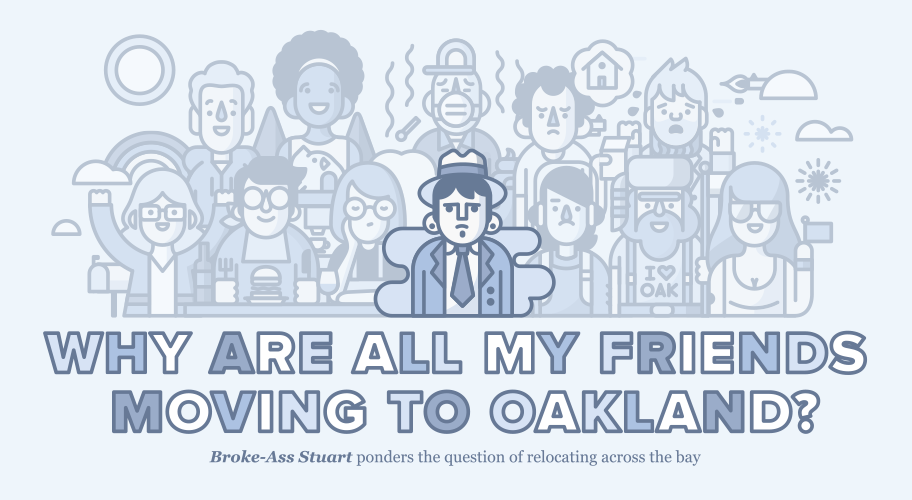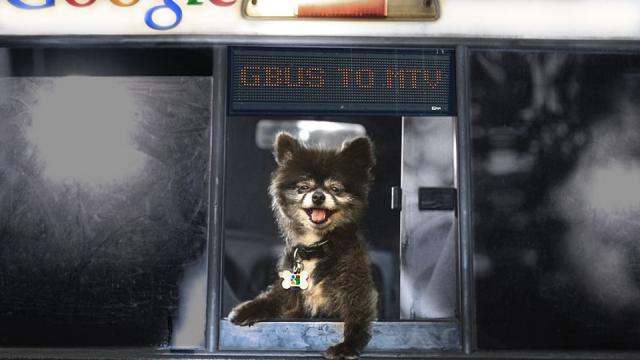
SAN FRANCISCO, Calif. – These are rough economic times for San Franciscans who've seen the cost of rent soar to astronomical heights in recent years – due partly to the young and affluent tech class, led by Google, whose numbers of employees in the city has swelled driving up prices.
As a result, resentment is growing. Since late 2013, protesters have taken to blocking Google, Apple and other tech buses that increasingly hog the streets – and don't pay the city for use of its infrastructure as they shuttle employees to and from Silicon Valley an hour south.
But now, there is a new wrinkle in the saga of Bay Area tech privilege and it concerns the transport of employee pets – on the Google Dog Bus.
"We have Google dog buses," a Dutch Googler told Occupy.com last week as she stood at a corner bus stop near Dolores Park in the Mission. She was waiting with 15 other Google employees to be driven to the company's mega-campus, known as the Googleplex, in Mountain View.
She confirmed that the Google dog buses are a reality, distinct from the regular Google buses, enabling employees to travel with their doggies to work.
In its Code of Conduct, Google explicitly states that it is a dog-friendly place. "We like cats," reads the official document, "but we’re a dog company, so as a general rule we feel cats visiting our offices would be fairly stressed out."
Another Google employee who spoke to Occupy.com said, "We shouldn't be angry about Google allowing animals at work. If anything, you can be frustrated about the high level of benefits we have while working at the company."
For those who have been – and continue to be – priced out of San Francisco due to unaffordable rents provoked by the high-spending tech class, the Google dog bus reflects the new degree of disconnect emerging between the titans of Silicon Valley and the City by the Bay which they have, in a sense, occupied.
Occupy.com requested a comment from Google about the dog bus but received no reply.
In the meantime, the Google dog bus may represent something of a tipping point for poorer San Francisco residents and the animosity they are feeling toward the privileged tech world in their midst – akin to New York Mayor Bill de Blasio’s oft-mentioned "Tale of Two Cities" when describing the wealth gap in America’s biggest metropolis.
Alysabeth Alexander, the vice president of SEIU Local 1021, sees a direct link between the rise in tech buses and the increase in evictions across the city.
"We see the relation between Google buses and evictions, and many workers who work in public transportation are being forced to live one to two hours away and without transport into the city for work," Alexander said by telephone.
Whether or not the dog bus is taking things too far, she added, "this is really a side issue when compared to the environment and human issues at the center of this."
Housing activists, the Harvey Milk LGBT Democratic Club and Alexander's union – which staged a protest recently at Twitter headquarters, calling for the tech giant to receive fewer tax breaks – have lashed out at the San Francisco Municipal Transportation Agency's decision to continue to allow Google and other Silicon Valley companies to use the public MUNI bus stops for $1 per stop. Google reported that in 2012 the buses carried 1.8 million passengers.
The groups argue the SFMTA is failing not only on environmental issues but by on preventing the displacement of long-time residents in the city who can no longer afford to pay the fast-rising rental costs.
Current MUNI commuters pay $2 per ride in the city. With a daily average of 160,000 MUNI riders, the city earns hundreds of thousands of dollars each day. The MTA proposal for Google, Apple and other Silicon Valley companies is a $100,000 fee for larger companies and $80,000 for smaller ones, as a cost of using the streets and bus stops.
In June of 2011, according to priceonomics.com, the median rent price for a one-bedroom apartment in San Francisco was $2,195. Two years later, the price had jumped 27 percent to $2,795. The price of a two-bedroom apartment rose 33 percent – or almost 10 times the rate of inflation during that period.
While Google has argued that is buses have nothing to do with the overall explosion of prices in the city, the most desirable areas of the city all happen to be near a Google bus, or G-Bus, stop. This includes South of Market (SOMA), the Financial District, Russian Hill, Pacific Heights, Lower Pac Heights, Noe Valley, Nob Hill and the Mission.
Google also claims that without its luxury buses taking employees south to work, Googlers would no longer live in San Francisco. In this way, the company says the buses offer a "green" solution in the way of transportation.
However, a recent report from the University of California, Berkeley, argues the opposite. Danielle Dai and David Weinzimmer of Berkeley's Department of City and Regional Planning wanted to know how the shuttles influence the decisions of Silicon Valley workers deciding where to live and how to get to work.
Dai and Weinzimmer questioned riders about whether they would move closer to work if the shuttles were discontinued, and 40 percent said they would.
On top of the free shuttles, Silicon Valley employees are paid nearly $30,000 more than the average San Franciscan, according to a report from Dice. Valley employees average $108,603 annually, while those working in the city hover around $79,000.
As a result, landlords and real estate companies are responding to the extra cash flow – by bumping out residents who are less able to pay.
"We understand that the goal is to increase the bottom line," said a real estate agent in San Francisco, who admitted working closely with Silicon Valley companies "to place employees in housing in the city."
"We have increased rent prices to maintain the percentage between rent and income – [and] we are more focused than ever on attracting tech workers to the city because they bring more money with them."
That's not good news, of course, for residents who have not seen salaries increase yet are being forced to compete with younger, affluent renters for the same property.
"These systems need to work for all workers in all sectors. The tech industry is just one sector in the Bay Area," said Alexander of the SEIU. While some may see the Google dog bus as adding a touch of levity to the tensions over rent and rising city costs, it may also signal a new stage in the conflict over inequality brewing in the West.
3 WAYS TO SHOW YOUR SUPPORT
- Log in to post comments


